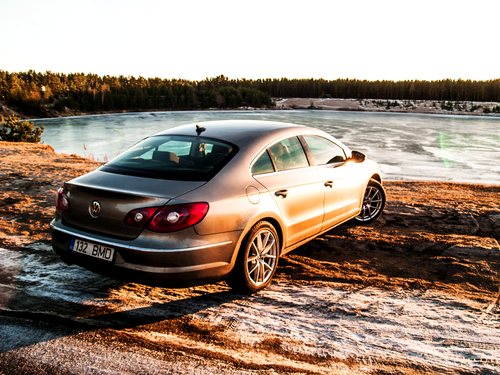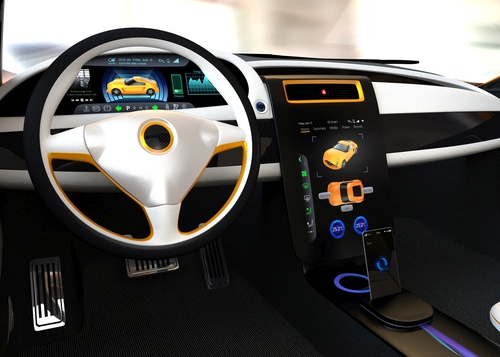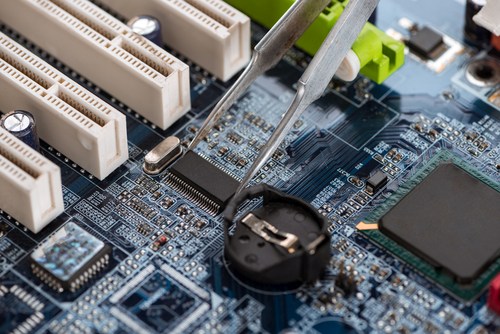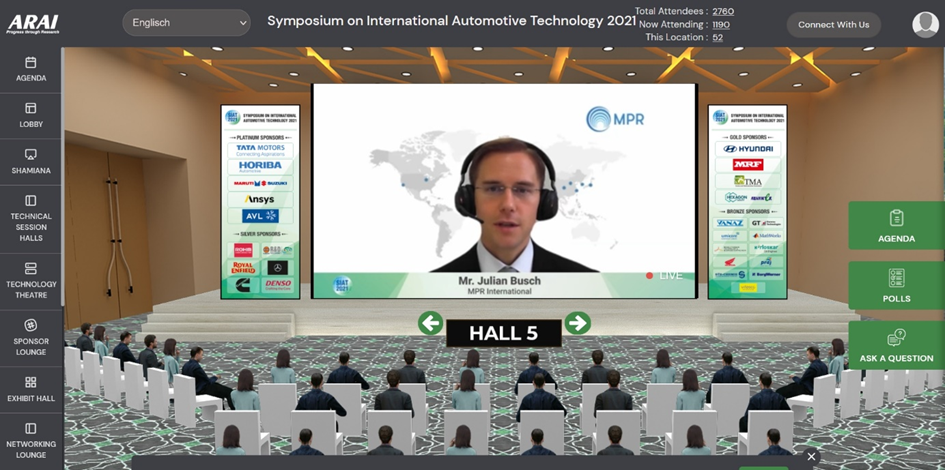Importance of Chinese car market for Volkswagen Group continues to grow
Forty percent of German car production is now sold in China. These figures come from a study of the Center Automotive Research by car expert Ferdinand Dudenhöffer. According to the study, the importance of the Chinese market for German car manufacturers has risen to a new record level. In 2020, Volkswagen, Daimler and the BMW Group exported around 5.4 million vehicles to China. Globally, this corresponds to 38.2 per cent of 14.16 million new vehicles sold. Exports also continued to rise, even though the actual number of German cars sold on the Chinese market fell slightly by 250,000 new cars. The import of components and equipment for vehicle production in China in many cases requires CCC certification of the corresponding products.

The Chinese export share in 2020 of BMW, Daimler and the Volkswagen Group was 33.4 per cent, 30.6 per cent and 38.6 per cent, respectively. While BMW and Daimler were able to increase their sales compared to the previous year, VW’s sales shrank by 2.8 per cent. The car expert Dudenhöffer sees a worldwide decline in new car sales as the reason. Nevertheless, according to Dudenhöffer, VW and Audi in their current form would be “unimaginable” without the China business. The figures of the past years show that the success and growth of the German car industry is largely dependent on economic growth in China.
Vehicles and components must obtain a CCC certificate so that the products can be exported to China or manufactured locally. CCC certification is a complex project that requires professional support at all stages. For several years, MPR China Certification GmbH has been entrusted with large CCC projects for the vehicle manufacturers Lotus, Tesla and Bugatti. We would be happy to advise you on the scope and requirements of a China CCC certification without obligation.
For more information on how CCC certification, the CCC Self-Declaration and voluntary CCAP or CQC certification may affect your company, or for more information about CCC certification in general, the process, and the associated costs, please visit our website and our News Section where you will find current updates twice a week.
Please do not hesitate to contact us for further details and consultation. You can contact us via e-mail, or call us (UK: +44 2071931135, Rest of Europe: +49 69 2713769150, US: +1 773 654-2673).
Please don’t hesitate to also use our chat-window in the bottom right corner if you have any questions. (Please check your browser settings if you can’t see the window)
You can also check out our free CCC-Brochure, which can be downloaded right here as a PDF file or you consult our book (in English) “A Brief Guide to CCC: China Compulsory Certification”, which can be found directly here on Amazon.
Here you can download our brochure about the CCC Self-Declaration.
Here you can download our brochure about the voluntary CCAP or CQC certification.
Chinese automaker Geely enlists Tencent as third tech partner
Chinese carmaker Geely has signed key partnerships in recent weeks for its projects related to e-mobility and autonomous driving. After internet all-rounder Baidu and Apple supplier Foxconn, it is now also working with technology provider Tencent. Geely aims to develop smart vehicle cockpits and autonomous driving capabilities with its partners. Chinese entrepreneur and Daimler partner Li Shufu is behind Geely’s agreements with companies from the technology sector. The components and parts required for the construction of such cockpits are usually subject to CCC Certification and must undergo product certification before they can be introduced into the Chinese market.

The collaboration is already bearing fruit: Baidu has announced that it will launch a new subsidiary brand together with Geely to develop intelligent electric cars. Baidu had already previously collaborated with BMW on similar projects. According to insider information from Reuters, Baidu will have a majority stake in the new joint venture. Geely is to provide the necessary automotive know-how, as the Chinese carmaker is increasingly focusing on electric vehicles. After acquiring the Swedish car brand Volvo in 2010, Geely developed a new platform for e-cars, which resulted in the Volvo XC40 Recharge and a new sub-brand, Polestar, among others.
In addition, Geely CEO Li Chufu is also a major shareholder in German automaker Daimler. Their cooperation is to be expanded in the future at Li’s insistence: The next generation of the now all-electric Smart will be built by Geely in China. In addition, there will again be a four-seater as well as a new compact electric SUV. Despite all of Geely’s ambitions regarding the expansion of electric mobility, internal combustion engines will continue to be developed and manufactured. In the future, it will also build powertrains for Daimler in its own company, which is operated jointly with Volvo. Geely has also founded the Lynk&Co brand, which offers both combustion engines and electric cars. On the global market, Geely is the largest shareholder in the Malaysian car manufacturer Proton and the traditional British brand Lotus.
Vehicles and components must be awarded a CCC certificate in order for products to be exported to China or manufactured locally. CCC certification is a complex project that requires professional support at all stages. For several years MPR China Certification GmbH has been entrusted with large CCC projects for the vehicle manufacturers Lotus, Tesla and Bugatti. We will gladly advise you on the scope and requirements of a China CCC certification without obligation.
For more information on how CCC certification, the CCC Self-Declaration and voluntary CCAP or CQC certification may affect your company, or for more information about CCC certification in general, the process, and the associated costs, please visit our website and our News Section where you will find current updates twice a week.
Please do not hesitate to contact us for further details and consultation. You can contact us via e-mail, or call us (UK: +44 2071931135, Rest of Europe: +49 69 2713769150, US: +1 773 654-2673).
Please don’t hesitate to also use our chat-window in the bottom right corner if you have any questions. (Please check your browser settings if you can’t see the window)
You can also check out our free CCC-Brochure, which can be downloaded right here as a PDF file or you consult our book (in English) “A Brief Guide to CCC: China Compulsory Certification”, which can be found directly here on Amazon.
Here you can download our brochure about the CCC Self-Declaration.
Here you can download our brochure about the voluntary CCAP or CQC certification.
Taiwan’s economy grew by 8.16 percent in the third quarter
Taiwan’s economy grew 8.16 percent in the third quarter of 2021, the highest since the fourth quarter of 2010, the government reported in late April. The result was 1.96 percent higher than the estimate of the Directorate General of Budget, Accounting and Statistics (DGBAS), according to the CNA news agency. The expansion of domestic production capacity and a continued high level of domestic investment, as well as higher-than-expected exports, were the main factors behind the increase in GDP. Many product categories from various sectors such as electronic products, motors, textile goods, children’s products and others that would require BSMI certification to be imported into Taiwan and sold there have seen increasing sales.

A week before the figures were announced at the end of April, the Taiwan Institute of Economic Research (TIER) issued its forecast for the full year 2021. The TIER, one of Taiwan’s leading expert committees, expects the economy to grow by more than 5 percent this year.
Throughout the Covid 19 pandemic so far, Taiwan’s economy has developed at a brisk pace. The current global shortage of semiconductors and chips for the automotive industry highlighted the Taiwan’s importance in the global electronics supply chain.
Certain products imported and sold into Taiwan must undergo what is known as BSMI certification. BSMI certification is mandated by Article 37 of The Commodity Inspection Act. The application for a BSMI certificate in Taiwan has to be submitted to the administrative authority of the Ministry of Economic Affairs in Taiwan “Bureau of Standards, Metrology and Inspection” (BSMI). If you still have any questions about the process or you would gladly like to have your product evaluated for BSMI certification compliance, please feel free to contact us at any time.
Please do not hesitate to contact us for further details and consultation. You can contact us via e-mail, or call us (UK: +44 2071931135, Rest of Europe: +49 69 2713769150, US: +1 773 654-2673).
You can also check out our free Taiwan-Brochure, which can be downloaded right here.
Please don’t hesitate to also use our chat-window in the bottom right corner if you have any questions. (Please check your browser settings if you can’t see the window)
Successful participation in the virtual Symposium on International Automotive Technology (SIAT) in India
From September 29 to October 01, 2021, the Symposium on International Automotive Technology (SIAT) took place in India with a variety of informative expert presentations around the topic “Redefining Mobility for the Future”.

After the official opening, plenary sessions discussed a variety of topics for the future. Topics ranged from alternative energies, e-mobility, emission control, to the general challenges in the international certification market.
Julian Busch, Managing Director of MPR International from Frankfurt, gave an overview of the current challenges in the international certification market. He explained the various types of certifications, how they are applied worldwide in a comparable form and how they differ greatly nationally. In this context, the increasingly complex test requirements represent a major challenge for the manufacturers of vehicles and components.
Currently, the most important certifications for the Indian automotive market are AIS (Automotive Industry Standards) certification or a certification from the BIS (Bureau of Indian Standards). The product scope for BIS certification alone was expanded by 242 product groups last year. The Indian authorities plan to continue this trend.
Automotive manufacturers and Indian test centres alike benefited from the information provided at the seminars. The information is valuable since the India market is booming with projected growth into the foreseeable future making product certifications more relevant. Due to the ever-increasing complexity of regulations, it is also important for the local test infrastructure to stay up to date.
To obtain certification in India, domestic and foreign automotive manufacturers must meet the same requirements. For example, in most cases, a factory audit and product testing are required as part of the certification process for both domestic and foreign manufacturers. Some products even require more than one certification. Good preparation and knowledge of the current regulations are crucial for smooth and trouble-free trading.
We will be happy to advise you on certification in India like AIS, BIS, WPC, TEC or PESO and are always available to answer your questions.
Please do not hesitate to contact us for further details and consultation. You can contact us via e-mail, or call us (UK: +44 2071931135, Rest of Europe: +49 69 2713769261, US: +1 773 654-2673).
If you have any questions you can also use our chat-window in the bottom right. (Please check your browser settings if you can’t see the window)
You can also check out our free AIS-Brochure and BIS-Brochure which can be downloaded for free in PDF format.


